SUMMARY
This is AI generated summarization, which may have errors. For context, always refer to the full article.
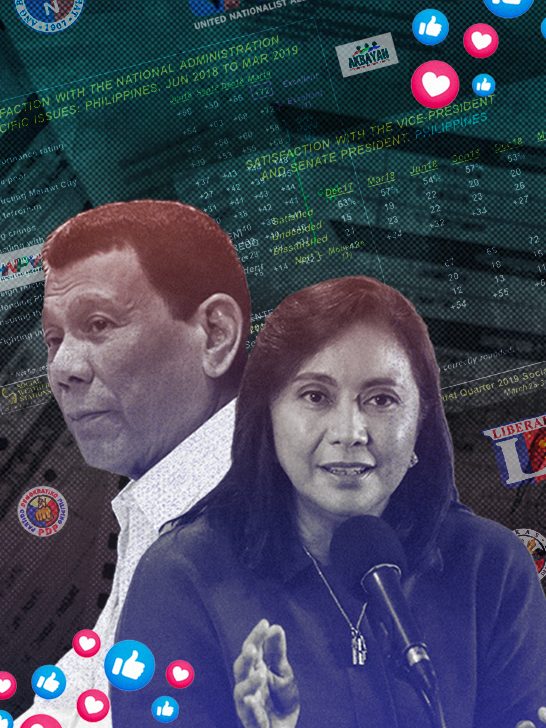
The campaign for Senate seats – officially from February 19 to May 11, 2019, but started early for candidates with money to burn – happened against this backdrop: a president with a consistently high satisfaction rating with the wherewithal to grace the campaign rallies of his candidates; a vice president, who is only half as popular backing one of the opposition slates (Otso Diretso led by her party). The budget of her office is also 15 times less than the President’s.1
From March 2018 to March 2019, in a total of 5 nationwide surveys by Social Weather Stations (SWS),2 Duterte’s net satisfaction ratings ranged from +45 to +66, averaging +56.2. The highest was two months before the elections, at +66.
In contast, Vice President Leni Robredo’s net satisfaction ratings ranged from +27 to +42, averaging +33.8.
The administration announced 4 combinations for a senatorial slate, all banking on the popularity of President Duterte:
- Partido Demokratiko Pilipino-Laban (PDP-Laban),3 the national party which Duterte chairs, had 5 candidates.
- Hugpong ng Pagbabago,4 a Davao Region-wide party established by presidential daughter Davao City Mayor Sara Duterte-Carpio, endorsed two slates: one for promotion nationwide, and another regionwide, for a total of 14 candidates5 – more than the 12 slots up for grabs in the elections.
- President Duterte himself announced 11 personal choices, although there were only 3 whom he made special mention of in his campaign speeches.
This approach, however, didn’t exactly split up the vote base for candidates supportive of the administration. Combinations of the 4 slates had 4 to 11 common candidates. Nine of them won.
The camps not allied with the administration had their separate slates:
- Otso Diretso (initially called Oposisyon Koalisyon), the coalition led the Liberal Party (LP), fielded 8 candidates, 4 slots less than what were up for grabs and which took time to complete.
- Labor Win, a coalition of labor groups, had 5 candidates, including leftist former congressman Neri Colmenares.
- Independent reelectionists, Grace Poe and Nancy Binay, went around separately, but mounted rallies together with Duterte-endorsed reelectionists during a few choice occasions.
Only the two independent reelectionists won, plus Lito Lapid, a former senator who also ran as independent.
The slates didn’t have common candidates, thus preventing the consolidation of an anti-Duterte vote base. Colmenares said he and the LP could not resolve some “basic differences” for him to be included in the Otso coalition’s senatorial slate. Labor Win itself was a belated coming together of labor movements of various persuasions, after Duterte didn’t deliver on his promise to end contractualization. One of the member groups, Partido Lakas ng Masa, even called Otso Diretso “the Yellow elite opposition.”
The campaign of the dominant opposition, Otso Diretso, was also beset by a couple of major miscalculations. According to political analysts: 1) it started organizing too late in the game; 2) its messaging mostly attacked the wrong person on the wrong issues at the wrong time.6
Political strategists traditionally recommend that organizing and campaign preparations start at least 12 months before Election Day – for local positions at that. A national campaign would require a longer period. And this strategizing should be informed by a baseline survey of voters’ profile – their concerns, behaviors, and preferences – in the 81 provinces.
Otso Diretso launched its Project Makinig in October 2018,7 or 7 months before the elections. Some 12,000 volunteers did door-to-door campaigning, spending time listening to the concerns of families who let them in. But it was a strategy fit for a local campaign. So while they were able to conduct thousands of such conversations, these were not enough to reach and convert most of the 61.84 million registered voters nationwide8 within the short period of time.
“The opposition did too little, too late in the game,” said Carmel Abao, who teaches political science at the Ateneo de Manila University. “An election campaign has a greater chance of being successful if launched long before an election actually takes place… Political and social capital matters. Building and mobilizing such capital takes time – especially in a contest where opponents have the advantage of being incumbents.”
There were two views on how the opposition should have dealt with Duterte’s popularity: to counter the Duterte “myth” by offering a “new narrative perhaps or new vision of this country”9 or by focusing criticism on the individual “inadequacies” of rival senatorial candidates instead of the President who was carrying them.10
“We didn’t check the temptation of attacking the President…and given the popularity of the President, it didn’t work. That was the strategy: instead of pointing out the shortcomings of your competition – meaning, the other candidates for senator – we attacked the person of the President,” said Senate Minority Leader Franklin Drilon.
He said Otso Diretso was just following a “natural response” that opposition groups were known to resort to – “even in past campaigns, you attack the administration.”
What the dominant opposition failed to factor in their messaging, said economist Walden Bello, was that “we are no longer in the realm of politics as usual,” and this started in 2016, when Duterte won the presidency.
He noted:
Mass authoritarian mobilization of the electorate is what the traditional opposition has been up against, and it has made the mistake of allowing itself to be intimidated by it.
From the very beginning, the Otso Diretso slate projected a marked lack of confidence, with some of the candidates publicly proclaiming that it would be hard to win against Duterte.
A Liberal Party spokesman, in fact, said that the electoral campaign would provide an opportunity to “consult” people on why the previous administration lost the trust of the people, effectively making the elections a referendum on that administration than on the current one.11
The LP, which led the coalition, is not exactly known for responding quickly to shifts in the political terrain. Their loss in 2019 was, in fact, a delayed reality check from 2016. When LP’s Manuel “Mar” Roxas II lost to Duterte in the 2016 presidential election, the party took months to regroup – by that time, many members had jumped ship to the new president’s PDP-Laban.12
In contrast, the Duterte camp, even after he won, continued its campaign to further weaken the opposition. For 2018, for instance, Rappler made a tally of the subjects of the viral disinformation it fact-checked, and found that 6 out of the top 10 involved the LP and personalities associated with it. The administration did this systematically through social media13 and a group of bloggers.14
Even in this aspect of the campaign, Drilon acknowledged that the opposition in 2019 was at a disadvantage: “Social media can be expensive, trolls can be expensive, and resources were with the administration.”15
How crucial is the new Senate?
Given the 12 newly-elected senators, we group Senate 2019-2022 into 3, based on their track record and pronouncements on Duterte policies: the administration allies, those in the middle ground (meaning, they would support or criticize the Duterte administration, as they see fit), and the opposition. It’s 12-8-4:

This means that for any Malacañang-sponsored bill or treaty or any pro-administration resolution to pass, President Duterte’s lieutenants will need to court only a few more from among the middle ground senators: a simple majority is 13 votes, two-thirds is 16 votes, and three-fourths is 18 votes.
The consolidation of the Chief Executive’s hold on the Senate “means the removal of the last institutional obstacle to President Duterte’s agenda,” Abao said. “The hold of Duterte now spans all branches of government – executive, judicial, and legislative (both houses).”
Former Ateneo School of Government dean Antonio La Viña called this “a watershed moment in Philippine politics and governance, the final step of consolidation by the Duterte family of its dominance over the political elite.”
He said, “It’s like martial law all over again.”
Agenda: The unfinished business of the 17th Congress
The incoming Senate’s agenda will include the unfinished business of the 17th Congress – controversial bills and resolutions that the House of Representatives passed rather swiftly, but either met resistance from senators or were shelved for lack of time to debate and vote upon. Among them are:
- Restoration of the death penalty16
- Lowering of the minimum age of criminal responsibility17
- Mandatory drug testing among grade school and high school students18
- Mandatory Reserved Officers’ Training Corps (ROTC) program in senior high school19
- Continuing extension of martial law in Mindanao20
- Granting of emergency powers for Duterte to solve Metro Manila’s traffic21 and flooding22 problems
- Rewriting the Constitution to effect a shift to a federal system of governmenty23
Human rights advocates and administration critics have expressed concerns that these measures would either enable Duterte’s authoritarian inclinations24 or open the floodgates to more abuses by state actors, given the culture of impunity that the miscarriage of the government’s anti-drug campaign has bred.25
Will the Senate be independent in exercising special powers?
A Senate dominated by Duterte allies also threatens the independent exercise of the special powers that the 1987 Constitution grants it. These are:
- Hearing of electoral protests in senatorial contests26
- Confirmation of presidential appointees27
- Conduct of inquiries in aid of legislation28
- Declaration of a state of war29
- Proposing and concurring with amendments to the national budget originating from the House of Representatives30
- Trying impeachment cases against the President, Vice President, justices of the Supreme Court, and members of constitutional bodies31
- Approving treaties and international agreements entered into by the executive branch32
- Granting, amending, extending, or revoking of franchises for public utility businesses33
A Senate that will assert its right to review and approve (or reject) treaties and international agreements is particularly important, given Duterte’s pivot to China.34 Barely 3 months into his presidency, Duterte said in 2016 that the Philippines’ military exercise with the United States set for October that year would be the last under his term, despite the Mutual Defense Treaty and the Visiting Forces Agreement between the two countries.
In September 2016 too, he announced that the Philippines would buy military equipment from China and Russia. In October – a week after the military exercises with the US – he said he was open to conducting war games with China and Russia, since he has “given enough time for the Americans to play with the Filipino soldiers.”35
In May 2017, Duterte expressed openness to military drills with China in Mindanao. He announced this after he was given a tour of what he called “very impressive” Chinese warships that docked at a wharf in Davao City, the city he ruled for decades as mayor.
During the time of then-president Gloria Macapagal Arroyo, the executive entered into a joint maritime seismic undertaking (JMSU) in the West Philippine Sea (South China Sea) with China in 2004. A new agreement belatedly included Vietnam in 2005 after the latter protested.
What made this agreement questionable, reported abs-cbnNews.com, was: “The JMSU site is about 80 percent within the Philippines’ exclusive economic zone, but the government, through the pact, acknowledged the area as disputed….Even the 20 percent of the JMSU area, which is outside the Philippines’ 200-nautical-mile EEZ, is still far from the Spratlys area that is internationally acknowledged as contested.”
Malacañang bypassed the Senate for approval, although the agreement had the nature of a treaty.36 The Supreme Court (SC) to this day – more than a decade after the petition was brought before it in 2008 – has not ruled on the constitutionality of the JMSU.
Without jurisprudence on the JMSU, the Duterte government can very well enter into similar agreements with China, without the prospect of the Senate insisting on exercising its power to approve it. But should the SC decide against the way the JMSU was forged, and require the Senate’s approval for such, a chamber dominated by Duterte’s allies is expected to be cooperative.
In fact, Duterte already signed a memorandum of understanding with Chinese President Xi Jinping on November 20, 2018, to study joint exploration and development in the West Philippine Sea. On May 28, 2019, Duterte signed an executive order that removed the obstacle to an oil exploration deal with a Chinese company.
1 For 2019, the House approved a budget of P449 million for Office of the Vice President (Mara Cepeda, “House panel approves P447-M OVP budget for 2019, Rappler, August 29, 2018, https://www.rappler.com/nation/210633-office-vice-president-proposed-budget-2019″), compared to P6.773 billion for the Office of the President (Pia Ranada, “House panel approves P6.7-B Office of the President budget for 2019,” Rappler, August 29, 2018, https://www.rappler.com/nation/210651-house-panel-approves-office-of-the-president-2019-budget).
2 The Social Weather Station did not publish pre-election surveys commissioned by candidates. We look at Duterte and Robredo’s satisfaction ratings, as gathered by SWS, starting March 2018 because that’s also the month that Pulse Asia started conducting pre-election surveys. The political consultancy firm Publicus Asia also conducted its own non-commissioned surveys, “Pahayag,” http://www.publicusasia.com/category/pahayag/.
3 Rodrigo Duterte’s official party membership remains with Hugpong sa Tawong Lungsod, the local party he founded in Davao City. PDP-Laban adopted him in 2015 to become its standard-bearer in the 2016 presidential elections.
4 Not to be confused with her father’s city-wide party, Hugpong sa Tawong Lungsod.
5 The list initially had 13 names, but Hugpong added former senator Bong Revilla (Pia Ranada, “Hugpong ng Pagbabago adds Bong Revilla to Davao Senate slate,” Rappler, October 18, 2018, updated February 4, 2019, https://www.rappler.com/nation/politics/elections/2019/214640-hugpong-ng-pagbabago-adds-bong-revilla-davao-senatorial-slate). The list of 14 was shortened again to 13 after former presidential spokesman Harry Roque withdrew from the race.
6 Read Walden Bello, “[ANALYSIS] 2019 elections: The jolt we all need,” Rappler, May 7, 2019, https://www.rappler.com/thought-leaders/229832-analysis-jolt-we-all-need-elections-2019; Carmel V. Abao, “Opposition bets failed to counter Duterte strongman myth – analyst,” Rappler, May 14, 2019, https://www.rappler.com/nation/politics/elections/2019/230539-opposition-failed-counter-duterte-strongman-myth; and Abao, “[OPINION] And the winners are…Rodrigo Duterte and Coco Martin, Rappler, May 16, 2019, https://www.rappler.com/thought-leaders/230744-rodrigo-duterte-coco-martin-winners-elections-2019.
7It was not clear if the recruitment for Project Makinig was the same as, or an extension of, the online membership recruitment launched by the Liberal Party in January 2018 (Bea Cupin, “Liberal Party guns for ‘hearts and minds’ in year 2 of Duterte,” Rappler, January 21, 2018, https://www.rappler.com/nation/194150-liberal-party-recruitment-duterte-year-2). If it was, then it meant the party took a good 9 months to utilize the available network of volunteers.
8This figure excludes the 1.82 million registered overseas absentee voters for 2019.
9Arjan Aguirre, political science instructor at Ateneo de Manila University, in “Opposition bets failed to counter Duterte strongman myth – analyst,” Rappler, May 14, 2019, https://www.rappler.com/nation/politics/elections/2019/230539-opposition-failed-counter-duterte-strongman-myth.
10Senate Minority Leader Franklin Drilon, a Liberal Party member, on “How the opposition will navigate the next 3 years,” interview by Marites Dañguilan Vitug, Rappler Talk, Rappler, May 31, 2019, 00:55 to 03:45, https://www.youtube.com/watch?v=aabdwvvClWc.
11Walden Bello, “[ANALYSIS] 2019 elections: The jolt we all need,” Rappler, May 7, 2019, https://www.rappler.com/thought-leaders/229832-analysis-jolt-we-all-need-elections-2019.
12Bea Cupin, “The fall of the ‘dilawang’ Liberal Party,” Rappler, June 23, 2017, updated July 10, 2017, https://www.rappler.com/newsbreak/in-depth/173706-liberal-party-duterte-one-year.
13Read this 3-part Rappler series: Maria Ressa, “Propaganda war: Weaponizing the internet,” October 3, 2016, updated February 7, 2019, https://www.rappler.com/nation/148007-propaganda-war-weaponizing-internet; Ressa, “How Facebook algorithm impact democracy,” October 8, 2016, updated February 6, 2019, https://www.rappler.com/newsbreak/148536-facebook-algorithms-impact-democracy; and Chay Hofileña, “Fake accounts, manufactured reality on social media,” October 9, 2016, updated February 6, 2019, https://www.rappler.com/newsbreak/investigative/148347-fake-accounts-manufactured-reality-social-media.
14Read this 2-part Rappler series by Natashya Gutierrez: “State-sponsored hate: The rise of pro-Duterte bloggers,” August 18, 2017, updated June 2, 2018, https://www.rappler.com/newsbreak/in-depth/178709-duterte-die-hard-supporters-bloggers-propaganda-pcoo; and “Blogger-propagandists, the new crisis managers,” August 20, 2017, updated January 28, 2018, https://www.rappler.com/newsbreak/in-depth/178972-blogger-diehard-duterte-supporters-crisis-manager.
15Drilon, Rappler Talk, May 31, 2019, https://www.youtube.com/watch?v=aabdwvvClWc.
16Camille Elemia, “Duterte asks lawmakers to revive death penalty,” Rappler, July 10, 2016, https://www.rappler.com/nation/139237-duterte-meets-lawmakers-death-penalty.
17Camille Elemia, “Sotto: Senate to prioritize bill lowering age of criminal liability,” Rappler, January 21, 2019, https://www.rappler.com/nation/221511-sotto-says-senate-to-priortize-lowering-age-criminal-responsibility.
18Rambo Talabong, “PDEA’s new proposal: Mandatory drug tests for high school, college students,” Rappler, July 11, 2018, updated July 15, 2018, https://www.rappler.com/nation/207040-pdea-new-proposal-mandatory-drug-test-high-school-college-students.
19Pia Ranada, “Duterte certifies as urgent bill on mandatory ROTC,” by Rappler, June 3, 2019, https://www.rappler.com/nation/232171-duterte-certifies-urgent-bill-mandatory-rotc.
20Pia Ranada, “Malacañang thanks Congress for 3rd martial law extension,” Rappler, December 12, 2018, https://www.rappler.com/nation/218766-malacanang-thanks-congress-3rd-martial-law-extension-mindanao.
21Mara Cepeda, “Senate candidates want emergency powers for Duterte to solve traffic,” Rappler, March 3, 2019, https://www.rappler.com/nation/politics/elections/2019/224816-candidates-who-want-emergency-powers-duterte-solve-traffic.
22Paterno Esmaquel II, “Duterte emergency powers should cover flooding – Recto,” Rappler, August 13, 2016, https://www.rappler.com/nation/142958-duterte-emergency-powers-traffic-flooding-recto.
23The Senate “rejected” the proposal in October 2018 not because it had debated the merits and voted on them, but because there was no time to take it up. Senate President Vicente Sotto III said it should be left to the next Congress to tackle it. (Camille Elemia, “’Dead on arrival’: Senate leaders reject Arroyo’s draft charter,” Rappler, October 9, 2018, https://www.rappler.com/nation/213862-senate-leaders-reject-arroyo-draft-constitution).
24Joshua Makalintal, “Authoritarian Turn and Human Rights Crisis in the Philippines,” Heinrich Boll Stiftung, November 30, 2018, https://www.boell.de/en/2018/11/30/authoritarian-turn-and-human-rights-crisis-in-the-Philippines.
25Nadine Flatt, “Arbitrary Power and the Weakening of the Rule of Law in Duterte’s War on Drugs,” (Master thesis, Sociology of Law Department, Lund University, Spring 2018), 49-56, https://pdfs.semanticscholar.org/bc46/5da68526c79af41aa5a4a5a721457d74ae90.pdf.
26Article VI, Section 17, Philippine Constitution of 1987.
27Article VI, Section 18, Philippine Constitution of 1987.
28Article VI, Section 21, Philippine Constitution of 1987.
29Article VI, Section 23, Philippine Constitution of 1987.
30Article VI, Section 24, Philippine Constitution of 1987.
31Article XI, Section 3.6, , Philippine Constitution of 1987.
32Article VII, Section 21, Philippine Constitution of 1987.
33Article XII, Section 11, Philippine Constitution of 1987.
34Pia Ranada, “5 ways Duterte made good on his pivot to China,” Rappler, November 20, 2018, https://www.rappler.com/nation/217079-5-ways-duterte-made-good-on-pivot-china-xi-jinping.
35Read also Carmela Fonbuena, “Enemy at sea, friend of the chief: Philippine military navigates ties with China,” Rappler, November 19, 2018, https://www.rappler.com/newsbreak/in-depth/216884-philippine-military-navigates-ties-with-china-xi-jinping.
36Read Miriam Grace A. Go, “A Policy of Betrayal,” a 3-part series for ABS-CBN News: “Arroyo gov’t pleasing China since Day 1,” March 14, 2008, https://news.abs-cbn.com/special-report/03/14/08/policy-betrayal-first-three-parts; “Lawmakers let Palace get away with JMSU deal,” March 17, 2008, https://news.abs-cbn.com/special-report/03/17/08/policy-betrayal-second-three-parts; and “Supreme Court can void exploration deal,” March 17, 2008, https://news.abs-cbn.com/nation/03/16/08/policy-betrayal-last-three-parts.
Add a comment
How does this make you feel?


![[New School] Tama na kayo](https://www.rappler.com/tachyon/2024/02/new-school-tama-na-kayo-feb-6-2024.jpg?resize=257%2C257&crop=290px%2C0px%2C720px%2C720px)
![[Only IN Hollywood] After a thousand cuts, and so it begins for Ramona Diaz and Maria Ressa](https://www.rappler.com/tachyon/2024/02/Leni-18.jpg?resize=257%2C257&crop=262px%2C0px%2C720px%2C720px)
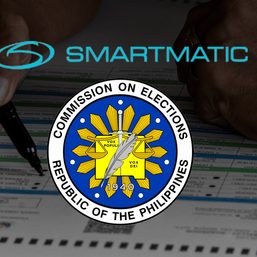
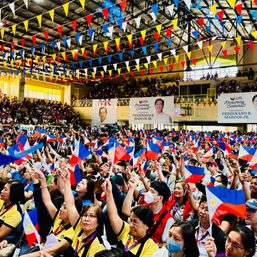
![[EDITORIAL] Ang low-intensity warfare ni Marcos kung saan attack dog na ang First Lady](https://www.rappler.com/tachyon/2024/04/animated-liza-marcos-sara-duterte-feud-carousel.jpg?resize=257%2C257&crop=294px%2C0px%2C720px%2C720px)
![[Free to disagree] How to be a cult leader or a demagogue president](https://www.rappler.com/tachyon/2024/04/TL-free-to-disagree.jpg?resize=257%2C257&crop_strategy=attention)
![[OPINION] Can Marcos survive a voters’ revolt in 2025?](https://www.rappler.com/tachyon/2024/04/tl-voters-revolt-04042024.jpg?resize=257%2C257&crop=251px%2C0px%2C720px%2C720px)
![[Edgewise] Quo vadis, Quiboloy?](https://www.rappler.com/tachyon/2024/03/quo-vadis-quiboloy-march-21-2024.jpg?resize=257%2C257&crop_strategy=attention)



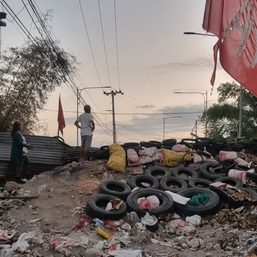
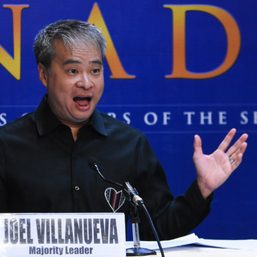
There are no comments yet. Add your comment to start the conversation.